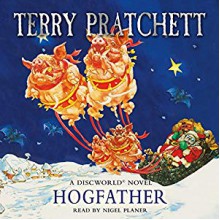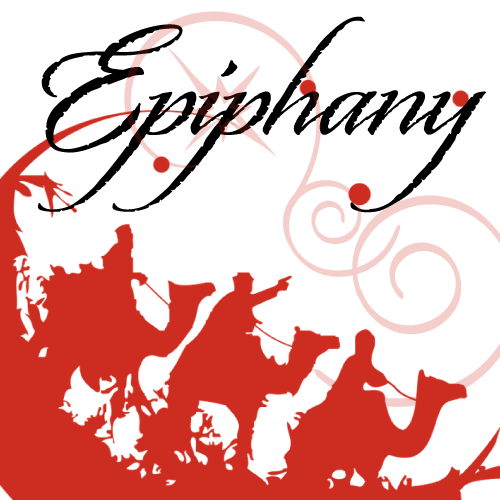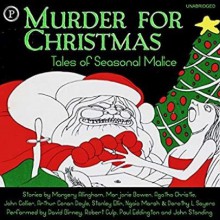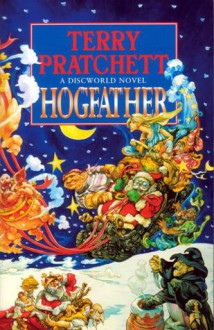
I read "Hogfather" twenty years ago. This is the first time I've re-read it since. The experience has shown me once again that no man can step into the same river, or in this case, book, twice. I'm not entirely the same person. These are not entirely the same times. So this is not the same book.
This is especially true of Terry Pratchett books, which are filled with so many spectacular verbal pyrotechnic displays that a first reading is spent going "Ooooh!" and "Aaaah!" and watching the pretty colours bouncing off your retinas.
Then there's the plot. It's always woven out of many threads and it makes a pattern that can only be seen from a metaphorical helicopter right at the end, which means it feels as though the plot is sneaking up on you so you end up giving it a lot of attention in case it does something while you're not looking.
This time around, I knew the plot and saw it for what it is, the shiny wrapping paper around the real heart of Pratchett's story. I still paused to go "Ooooh!" and "Aaah!" at the pyrotechnics but this time I was also looking for the pattern that they made.
What I saw was a book driven by two strong emotions: rage and hope.
Rage at an unjust world where poverty and suffering are seen as inevitable rather than as the consequence of the rights and privileges appropriated by those will never suffer poverty.
Hope that the human spirit can attack this injustice simply by believing profoundly in concepts like justice, mercy and duty.
I also saw a declaration of intent, almost a manifesto, about the role of fantasy, like Discworld, in making that change happen.
Let me give you some examples.
First a few samples of the pyrotechnics.
The book announces itself has having a philosophical intent (disarmingly wrapped in a self-deprecating humour) by opening with:
"Everything starts somewhere, although many physicists disagree.
But people have always been dimly aware of the problem with the start of things. They wonder how the snowplough driver gets to work, or how the makers of dictionaries look up the spellings of words. Yet there is the constant desire to find some point in the twisting, knotting, ravelling nets of space-time on which a metaphorical finger may be put to indicate that here, here, is the point where it all began..."
Wonderful stuff, not least because it is at the beginning and because it uses the word ravelling in a sentence.
Then there is the dry wit of statements like:
"The only sticky bit had been the embarrassment when her employer had found out she was a duchess because, in Mrs Gaiter's book, which was a rather short book with big handwriting, the upper crust wasn't supposed to work."
Or Archchancellor Ridcully of the Unseen University declaring:
"Real stupidity beats artificial intelligence every time."
Or Susan reflecting that:
"Education had been easy.
Learning things had been harder.
Getting an education was a bit like a communicable sexual disease. It made you unsuitable for a lot of jobs and then you had the urge to pass it on."
Or witty observations on the gap between story and reality like:
"It was a strange but demonstrable fact that the sacks of toys carried by the Hogfather, no matter what they really contained, always appeared to have sticking out of the top a teddy bear, a toy soldier in the kind of colourful uniform that would stand out in a disco, a drum and a red-and-white candy cane. The actual contents always turned out to be a bit garish and costing $5.99."
But, while these sparkle, they are not where the passion is.
We get the first hints of rage, thinly disguised as sarcastic wit, when Pratchett describes, that bastion of privilege, the Assassins' Guild, which reminded me very much of Eton. It starts with Lord Downey expressing pride in the Guild he leads because it:
"practised the ultimate in democracy. You didn't need intelligence, social position, beauty or charm to hire it. You just needed money, which unlike the other stuff, was available to everyone. Except the poor, of course but there was no helping some people".
It moves on to display the reflexive, ingrained. self-serving entitlement of the rich and powerful when Downey reflects that:
"...the Guild took young boys and gave them a splendid education and incidentally taught them how to kill, cleanly and dispassionately, for money and for the good of society, or at least that part of society that had money, and what other kind of society was there?"
The two prime movers of this story are DEATH and his granddaughter, Susan.
DEATH is an anthropomorphic projection, created and sustained by human belief who nevertheless is hungry for change and in love with the possibilities that life offers. DEATH is an entity that is locked into a skeletal form and constantly awake who challenges his limitation by choosing to have two silver handled hairbrushes he can't use next to the bed he doesn't need to sleep in.
Susan is someone who longs to be normal but knows that she isn't. She experiences a constant pull to get involved and prevent chaos from rolling over everyone.
DEATH's rage against vast poverty, especially in the presence of wealth is shown in this discussion with Albert:
BE HAPPY WITH WHAT YOU'VE GOT. IS THAT THE IDEA?
"That's about the size of it, master. A good God line that. Don't give 'em too much and tell 'em to be happy with it. Jam tomorrow, see."
THIS IS WRONG. Death hesitated. I MEAN IT'S RIGHTTO BE HAPPY WITH WHAT YOU'VE GOT BUT YOU'VE GOT TO HAVE SOMETHING TO BE HAPPY ABOUT HAVING. THERE'S NO POINT IN BEING HAPPY ABOUT HAVING NOTHING
Then.
IT IS... UNFAIR
"That's life, master."
WELL, I'M NOT
"I meant, that's how things are meant to go, master," said Albert.
NO. YOU MEAN THIS IS HOW IT GOES.
Having roused DEATH's rage at injustice, Pratchett then gives us the key exchange between DEATH and Susan that explains the role of fantasy in helping humans reach that point where "the falling angel meets the rising ape".
I can't add anything to this but applause so I'll leave you with the text:
[youtube https://www.youtube.com/watch?v=s4HE5riYMpY&w=560&h=315]
"All right," said Susan. "I'm not stupid. You're saying humans need... fantasies to make life bearable."
REALLY? AS IF IT WAS SOME KIND OF PINK PILL? NO. HUMANS NEED FANTASY TO BE HUMAN. TO BE THE PLACE WHERE THE FALLING ANGEL MEETS THE RISING APE.
"Tooth fairies? Hogfathers? Little—"
YES. AS PRACTICE. YOU HAVE TO START OUT LEARNING HOW TO BELIEVE THE LITTLE LIES.
"So we can believe the big ones?"
YES. JUSTICE. MERCY. DUTY. THAT SORT OF THING.
"They're not the same at all!"
YOU THINK SO? THEN TAKE THE UNIVERSE AND GRIND IT DOWN TO THE FINEST POWDER AND SIEVE IT THROUGH THE FINEST SIEVE AND THEN SHOW ME ONE ATOM OF JUSTICE, ONE MOLECULE OF MERCY. AND YET—Death waved a hand. AND YET YOU ACT AS IF THERE IS SOME IDEAL ORDER IN THE WORLD, AS IF THERE IS SOME...SOME RIGHTNESS IN THE UNIVERSE BY WHICH IT MAY BE JUDGED.
"Yes, but people have got to believe that, or what's the point—"
MY POINT EXACTLY.
 To round out the game, I'm going to use my two favorite anthologies among all the Christmas books I've listened to this month for the holiday book joker, and I'll use them for the Epiphany house blessing task (task 2), which feels appropriate for this day, and for Hogswatch task 2, as I (perhaps luckily) never had any encounters with department store Santas at all.
To round out the game, I'm going to use my two favorite anthologies among all the Christmas books I've listened to this month for the holiday book joker, and I'll use them for the Epiphany house blessing task (task 2), which feels appropriate for this day, and for Hogswatch task 2, as I (perhaps luckily) never had any encounters with department store Santas at all.


 Log in with Facebook
Log in with Facebook 


 Some of the things they came up with, I just went along with and pretended, simply because I'd have found it much more annoying to have to discuss the whole thing: E.g., while I didn't like the stuff that Germans call
Some of the things they came up with, I just went along with and pretended, simply because I'd have found it much more annoying to have to discuss the whole thing: E.g., while I didn't like the stuff that Germans call  BUT the one thing they produced and which downright drove me to distraction were Pumuckl's footprints! Pumuckl is the hero of a series of German children's books; a little kobold / gnome who one day takes residence in a master carpenter's shop, where he instantly proceeds to cause all sorts of havoc. I used to love those books, as well as the TV series based on them (with Pumuckl's voice done by
BUT the one thing they produced and which downright drove me to distraction were Pumuckl's footprints! Pumuckl is the hero of a series of German children's books; a little kobold / gnome who one day takes residence in a master carpenter's shop, where he instantly proceeds to cause all sorts of havoc. I used to love those books, as well as the TV series based on them (with Pumuckl's voice done by 









